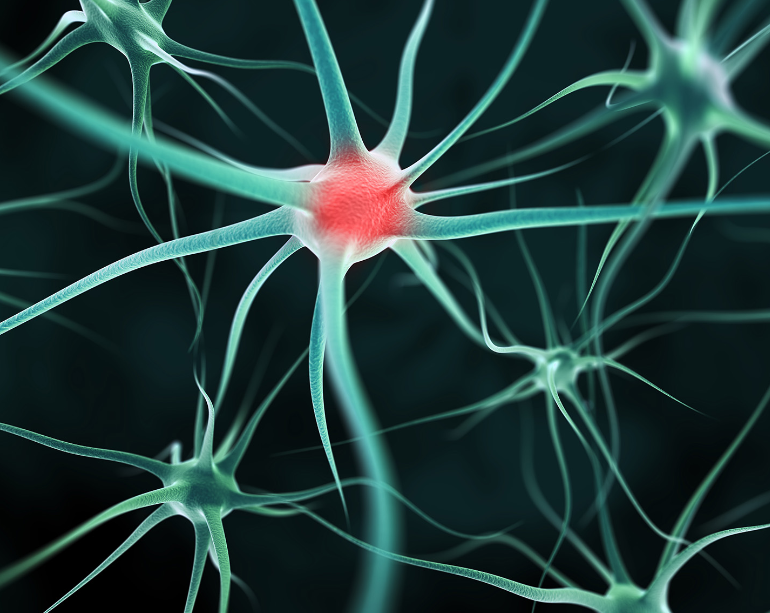
How to Identify Nerve Damage?
Share

Identifying nerve damage can be challenging, as symptoms can vary widely depending on the type and location of the affected nerves. Here are some signs and symptoms that may indicate nerve damage:
Sensory Symptoms
- Numbness or Tingling: A common sign of nerve damage is numbness or a "pins and needles" sensation, particularly in the hands or feet.
- Burning Sensation: You may experience a burning pain, especially at night.
- Sharp or Jabbing Pain: Sudden, sharp, or jabbing pain can be a symptom of nerve damage.
- Loss of Sensation: Reduced ability to feel pain, temperature changes, or touch.
- Other Conditions: Sensory symptoms like pain, aching, or stiffness may be more indicative of musculoskeletal or joint-related issues and not nerve damage.
Motor Symptoms

- Muscle Weakness: Nerve damage can cause muscle weakness, making it difficult to perform everyday tasks.
- Muscle Atrophy: Prolonged nerve damage can lead to muscle wasting.
- Loss of Coordination: Difficulty in maintaining balance or coordination.
- Other Conditions: Muscle weakness or limited mobility may be more associated with conditions like arthritis, muscle disorders, or joint problems.
Autonomic Symptoms
- Changes in Blood Pressure: Nerve damage affecting the autonomic nerves can lead to blood pressure changes.
-
Digestive Issues: Nerve damage can affect digestion, causing issues like constipation or diarrhea.

- Sweating Abnormalities: Excessive sweating or lack of sweating can be a sign of nerve damage.
- Bladder or Bowel Problems: Difficulty controlling bladder or bowel functions.
- Other Conditions: Autonomic symptoms are less common with non-neurological conditions, although some conditions like diabetes can affect the autonomic nerves.
Visual and Auditory Symptoms

- Vision Changes: Blurred vision or difficulty focusing can indicate nerve damage, particularly in the optic nerve.
- Hearing Changes: Hearing loss or tinnitus (ringing in the ears) can be symptoms of auditory nerve damage.
Other Symptoms
- Hypersensitivity: Increased sensitivity to touch or temperature.
- Pain with Light Touch: Experiencing pain from stimuli that are usually not painful (allodynia).
Diagnostic Steps
- Medical History and Physical Examination: Your doctor will review your medical history and conduct a physical exam to check for signs of nerve damage.
- Neurological Exam: Tests to assess sensory and motor function, reflexes, and coordination.
- Electromyography (EMG): Measures electrical activity in muscles to detect nerve dysfunction.
- Nerve Conduction Studies (NCS): Measures how quickly electrical signals move through your nerves.
- Magnetic Resonance Imaging (MRI): Can detect nerve compression or damage.
- Blood Tests: To check for underlying conditions like diabetes or vitamin deficiencies.
- Skin Biopsy: In some cases, a skin biopsy can be done to examine nerve fiber density.
What to do when you see these symptoms?
1) See a Doctor
If you experience any of the symptoms mentioned above, it’s important to consult a healthcare professional. Early diagnosis and treatment are crucial to manage symptoms and prevent further nerve damage.
2) Treat through SupplementsTreating nerve damage with supplements (natural remedies) are also very good option where it is treated by involving specific vitamins, minerals, and other compounds known to support nerve health, reduce inflammation, and promote healing. These Supplements are made by extracting vitamins, minerals or any compound from natural resources which are loaded with these.
3) Balanced Diet
Eat a diet rich in fruits, vegetables, whole grains, lean proteins, and healthy fats
4) Regular Exercise
Engage in regular physical activity to improve circulation and nerve health.
5) Proper Sleep
Ensure adequate and restful sleep to support overall health and recovery.
Summary
Nerve damage can manifest in various sensory, motor, and autonomic symptoms. If you suspect nerve damage, seek medical evaluation for accurate diagnosis and appropriate treatment. Early intervention can help manage symptoms and improve quality of life.
